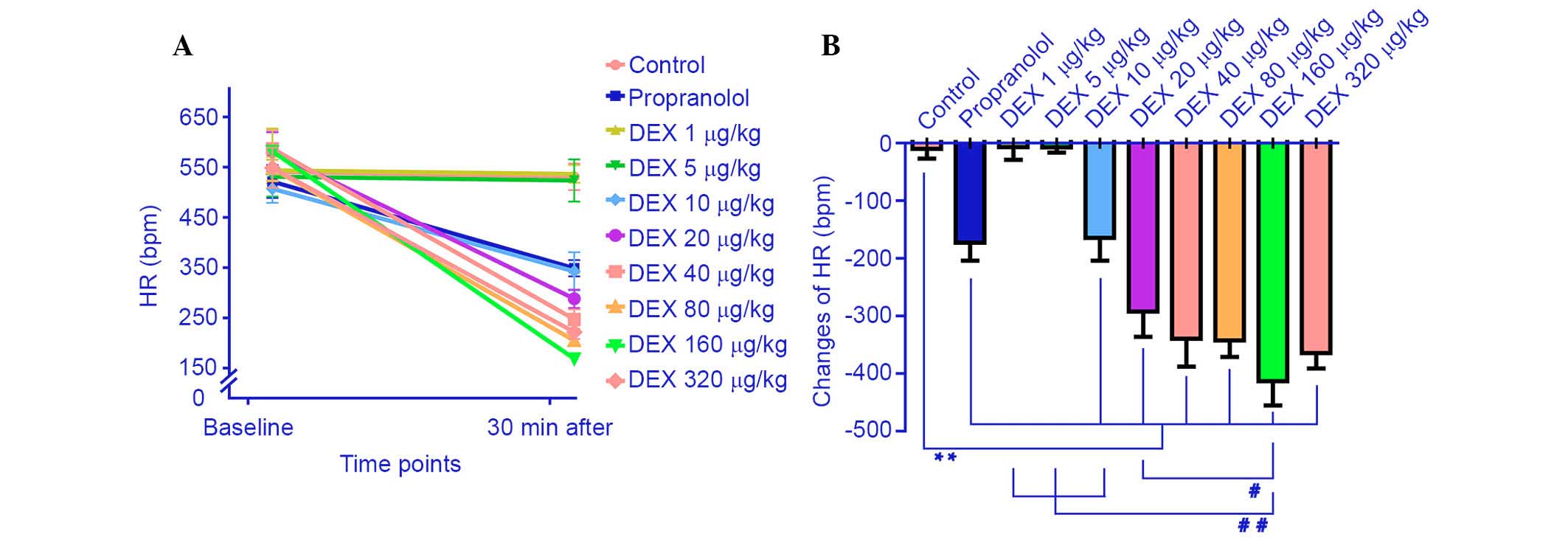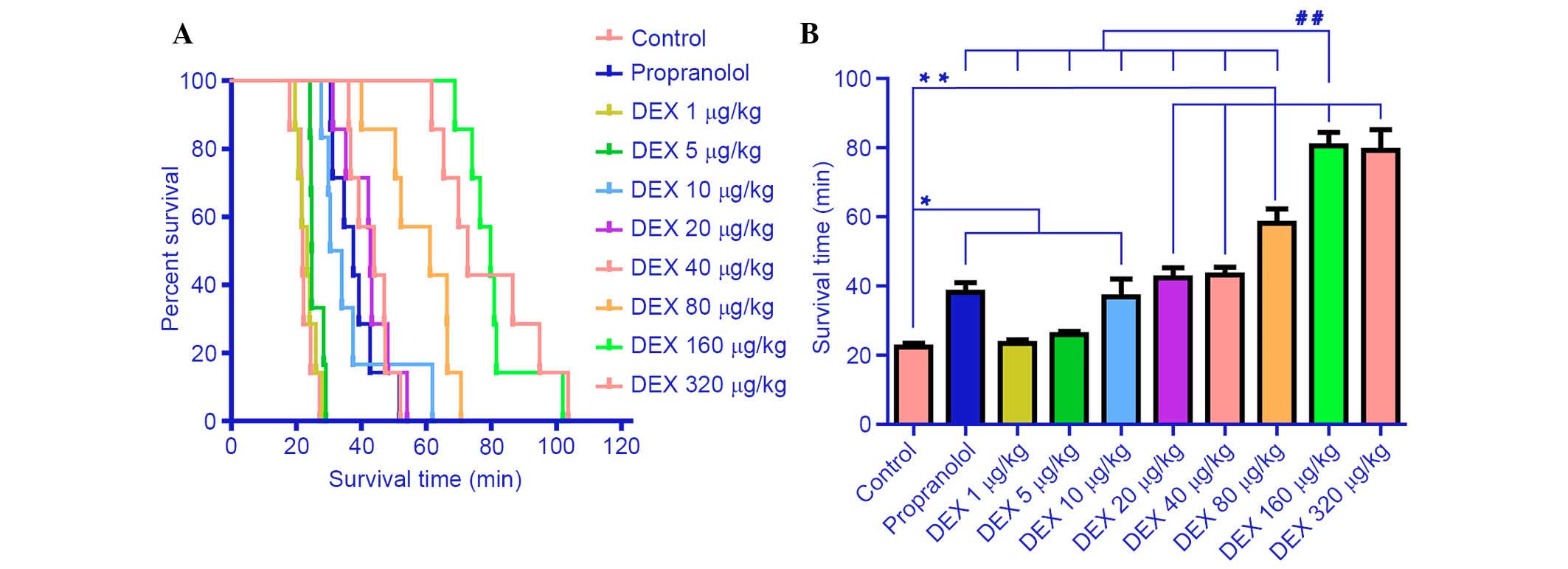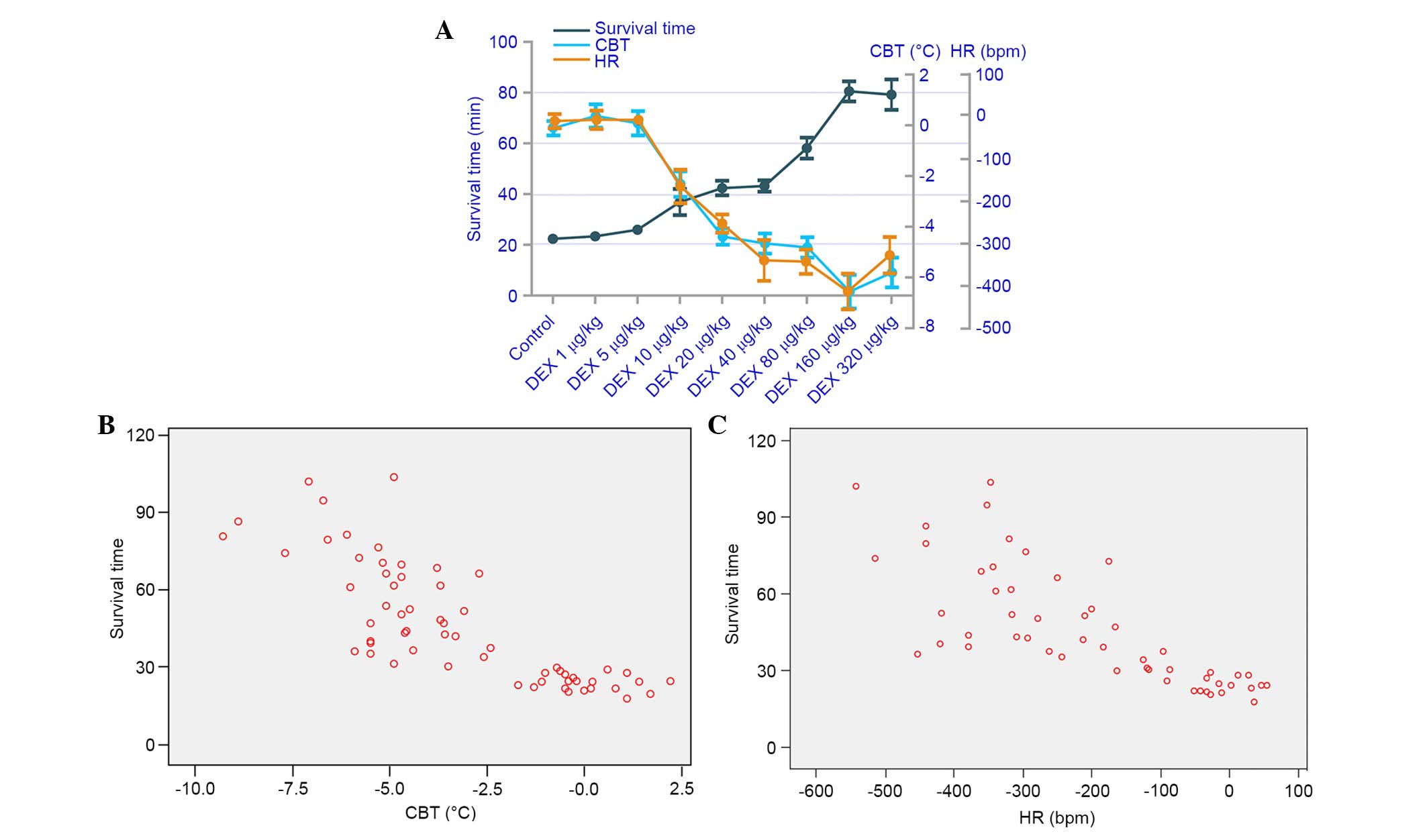|
1
|
Biorck G, Johansson B and Schmid H:
Reactions of hedgehogs, hibernating and non-hibernating, to the
inhalation of oxygen, carbon dioxide and nitrogen. Acta Physiol
Scand. 37:71–83. 1956. View Article : Google Scholar : PubMed/NCBI
|
|
2
|
Frerichs KU, Kennedy C, Sokoloff L and
Hallenbeck JM: Local cerebral blood flow during hibernation, a
model of natural tolerance to 'cerebral ischemia'. J Cereb Blood
Flow Metab. 14:193–205. 1994. View Article : Google Scholar : PubMed/NCBI
|
|
3
|
Ramirez JM, Folkow LP and Blix AS: Hypoxia
tolerance in mammals and birds: From the wilderness to the clinic.
Annu Rev Physiol. 69:113–143. 2007. View Article : Google Scholar
|
|
4
|
Blackstone E, Morrison M and Roth MB: H2S
induces a suspended animation-like state in mice. Science.
308:5182005. View Article : Google Scholar : PubMed/NCBI
|
|
5
|
Nystul TG and Roth MB: Carbon
monoxide-induced suspended animation protects against hypoxic
damage in Caenorhabditis elegans. Proc Natl Acad Sci USA.
101:9133–9136. 2004. View Article : Google Scholar : PubMed/NCBI
|
|
6
|
Kapinya KJ, Löwl D, Fütterer C, Maurer M,
Waschke KF, Isaev NK and Dirnagl U: Tolerance against ischemic
neuronal injury can be induced by volatile anesthetics and is
inducible NO synthase dependent. Stroke. 33:1889–1898. 2002.
View Article : Google Scholar : PubMed/NCBI
|
|
7
|
Ding Q, Wang Q, Deng J, Gu Q, Hu S, Li Y,
Su B, Zeng Y and Xiong L: Sevoflurane preconditioning induces rapid
ischemic tolerance against spinal cord ischemia/reperfusion through
activation of extracellular signal-regulated kinase in rabbits.
Anesth Analg. 109:1263–1272. 2009. View Article : Google Scholar : PubMed/NCBI
|
|
8
|
Westermaier T, Stetter C, Vince GH, Pham
M, Tejon JP, Eriskat J, Kunze E, Matthies C, Ernestus RI, Solymosi
L and Roosen K: Prophylactic intravenous magnesium sulfate for
treatment of aneurysmal subarachnoid hemorrhage: A randomized,
placebo-controlled, clinical study. Crit Care Med. 38:1284–1290.
2010. View Article : Google Scholar : PubMed/NCBI
|
|
9
|
Zheng H, Dong Y, Xu Z, Crosby G, Culley
DJ, Zhang Y and Xie Z: Sevoflurane anesthesia in pregnant mice
induces neurotoxicity in fetal and offspring mice. Anesthesiology.
118:516–526. 2013. View Article : Google Scholar : PubMed/NCBI
|
|
10
|
Wester maier T, Zausinger S, Baethmann A
and Schmid-Elsaesser R: Dose finding study of intravenous magnesium
sulphate in transient focal cerebral ischemia in rats. Acta
Neurochir (Wien). 147:525–532; discussion 532. 2005. View Article : Google Scholar
|
|
11
|
Kamibayashi T and Maze M: Clinical uses of
alpha2-adrenergic agonists. Anesthesiology. 93:1345–1349. 2000.
View Article : Google Scholar : PubMed/NCBI
|
|
12
|
Jolkkonen J, Puurunen K, Koistinaho J,
Kauppinen R, Haapalinna A, Nieminen L and Sivenius J:
Neuroprotection by the alpha2-adrenoceptor agonist,
dexmedetomidine, in rat focal cerebral ischemia. Eur J Pharmacol.
372:31–36. 1999. View Article : Google Scholar : PubMed/NCBI
|
|
13
|
Kuhmonen J, Pokorný J, Miettinen R,
Haapalinna A, Jolkkonen J, Riekkinen P Sr and Sivenius J:
Neuroprotective effects of dexmedetomidine in the gerbil
hippocampus after transient global ischemia. Anesthesiology.
87:371–377. 1997. View Article : Google Scholar : PubMed/NCBI
|
|
14
|
Maier C, Steinberg GK, Sun GH, Zhi GT and
Maze M: Neuropro-tection by the alpha 2-adrenoreceptor agonist
dexmedetomidine in a focal model of cerebral ischemia.
Anesthesiology. 79:306–312. 1993. View Article : Google Scholar : PubMed/NCBI
|
|
15
|
Ibacache M, Sanchez G, Pedrozo Z, Galvez
F, Humeres C, Echevarria G, Duaso J, Hassi M, Garcia L, Díaz-Araya
G and Lavandero S: Dexmedetomidine preconditioning activates
pro-survival kinases and attenuates regional ischemia/reperfusion
injury in rat heart. Biochim Biophys Acta. 1822:537–545. 2012.
View Article : Google Scholar : PubMed/NCBI
|
|
16
|
Wijeysundera DN, Naik JS and Beattie WS:
Alpha-2 adrenergic agonists to prevent perioperative cardiovascular
complications: A meta-analysis. Am J Med. 114:742–752. 2003.
View Article : Google Scholar : PubMed/NCBI
|
|
17
|
Gu J, Sun P, Zhao H, Watts HR, Sanders RD,
Terrando N, Xia P, Maze M and Ma D: Dexmedetomidine provides
reno-protection against ischemia-reperfusion injury in mice. Crit
Care. 15:R1532011. View
Article : Google Scholar
|
|
18
|
Si Y, Bao H, Han L, Shi H, Zhang Y, Xu L,
Liu C, Wang J, Yang X, Vohra A and Ma D: Dexmedetomidine protects
against renal ischemia and reperfusion injury by inhibiting the
JAK/STAT signaling activation. J Transl Med. 11:1412013. View Article : Google Scholar : PubMed/NCBI
|
|
19
|
Zhang XY, Liu ZM, Wen SH, Li YS, Li Y, Yao
X, Huang WQ and Liu KX: Dexmedetomidine administration before, but
not after, ischemia attenuates intestinal injury induced by
intestinal ischemia-reperfusion in rats. Anesthesiology.
116:1035–1046. 2012. View Article : Google Scholar : PubMed/NCBI
|
|
20
|
Wang ZX, Huang CY, Hua YP, Huang WQ, Deng
LH and Liu KX: Dexmedetomidine reduces intestinal and hepatic
injury after hepatectomy with inflow occlusion under general
anaesthesia: A randomized controlled trial. Br J Anaesth.
112:1055–1064. 2014. View Article : Google Scholar : PubMed/NCBI
|
|
21
|
Lähdesmäki J, Sallinen J, MacDonald E,
Sirviö J and Scheinin M: Alpha2-adrenergic drug effects on brain
monoamines, locomotion, and body temperature are largely abolished
in mice lacking the alpha2A-adrenoceptor subtype.
Neuropharmacology. 44:882–892. 2003. View Article : Google Scholar : PubMed/NCBI
|
|
22
|
Sallinen J, Link RE, Haapalinna A,
Viitamaa T, Kulatunga M, Sjöholm B, Macdonald E, Pelto-Huikko M,
Leino T, Barsh GS, et al: Genetic alteration of alpha
2C-adrenoceptor expression in mice: Influence on locomotor,
hypothermic, and neurochemical effects of dexmedetomidine, a
subtype-nonselective alpha 2-adrenoceptor agonist. Mol Pharmacol.
51:36–46. 1997.PubMed/NCBI
|
|
23
|
Shen ZB, Yin YQ, Tang CP, Yan CY, Chen C
and Guo LB: Phar-macodynamic screening and simulation study of
anti-hypoxia active fraction of xiangdan injection. J
Ethnopharmacol. 127:103–107. 2010. View Article : Google Scholar
|
|
24
|
Salmenperä MT, Szlam F and Hug CC Jr:
Anesthetic and hemodynamic interactions of dexmedetomidine and
fentanyl in dogs. Anesthesiology. 80:837–846. 1994. View Article : Google Scholar : PubMed/NCBI
|
|
25
|
Hogue CW Jr, Talke P, Stein PK, Richardson
C, Domitrovich PP and Sessler DI: Autonomic nervous system
responses during sedative infusions of dexmedetomidine.
Anesthesiology. 97:592–598. 2002. View Article : Google Scholar : PubMed/NCBI
|


















